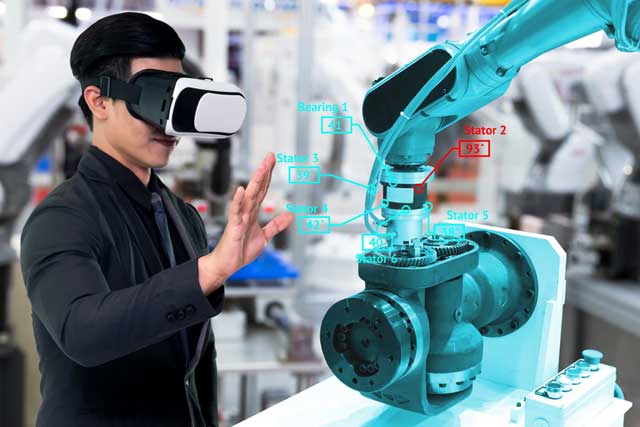 Augmented reality and virtual reality are set to become mainstream business tools in the next three years, according to a new survey by the Capgemini Research Institute.
Augmented reality and virtual reality are set to become mainstream business tools in the next three years, according to a new survey by the Capgemini Research Institute.
Maintenance is the most popular use of augmented reality, but companies in the UK and Europe are lagging behind the US and China in adoption of the technology. Complexity and a lack of skills are seen as the biggest barriers, with security issues also seen as a barrier in the UK.
The survey found that 42% of UK respondents believed augmented reality would become mainstream in three to five years, and 45% believed the same for virtual reality in the same time.
In the UK 42% of companies surveyed, which were mostly active in the use of AR and VR, were using AR or VR for repair and maintenance.
Overall, the report, Augmented and virtual reality in operations: A guide for investment found that 82% of companies currently implementing the technologies said the benefits are either meeting or exceeding their expectations. Three out of four companies (75%)with large-scale AR/VR implementations can attest to operational benefits of over 10%.
The report revealed that though AR is more complex to introduce, two-thirds of the organisations surveyed believed that AR was more applicable to their business operations than VR. While VR enhances a solo, immersive user experience that is isolated from the real world, AR connects the digital world to the real world. For example, AR can be used to remotely access real-time help from an experts via a wearable or handheld device, allowing the expert to see what the technician sees and provide feedback.
In the sectors surveyed – automotive, manufacturing and utilities – between 29% and 31% of companies using AR or VR were using it for repair and maintenance, specifically to consult digital reference materials (31%), seek a remote expert (30%), digitally view components hidden from sight (30%), and superimpose step-by-step instructions on workstations (29%). Technicians at Porsche use AR glasses that project step-by-step bulletins and schematic drawings across their line of vision.
The second most popular use for the technology was in design and assembly, for example to view digital assembly instructions (28%) or overlay design components on existing modules (26%).
In the US and China, over 50% of companies surveyed were already implementing immersive technology for business operations, whereas in the UK, France, Germany and Scandinavia and the majority were still only experimenting with AR/VR initiatives. Overall, of companies using augmented reality, 45% were at the implementation rather than experimentation stage.
The institute, Capgemini’s in-house think tank, identified four key strategies being used by a group of early achievers, 16% of the companies surveyed, which were gaining the most benefits from the technologies.
These were: using a central team to manage and build awareness of AR/VR, and investing an in-house teams of experts to gear up for adoption. Finding the right “use case” and testing its applicability was one of the top three priorities for early achievers, and preparing technology infrastructure to integrate AR/VR was also key. The inability to identify a use case was a problem for more than 50% of organisations, and a lack of data and technology readiness was also a major barriers to AR/VR adoption.
“Immersive technology has come a long way in a short time and will continue to evolve. Faced with stiff competition from aggressive investors in the US and China, businesses need to streamline investment to seize the long-term growth potential this technology offers,” said Lanny Cohen, Capgemini chief innovation officer.
A copy of the report can be downloaded here.
Capgemini surveyed 709 individuals with knowledge of their organisation’s AR/VR initiatives at 709 companies. The research focused mostly on companies active in AR/VR, with 603 organizations currently experimenting or implementing AR/VR.

